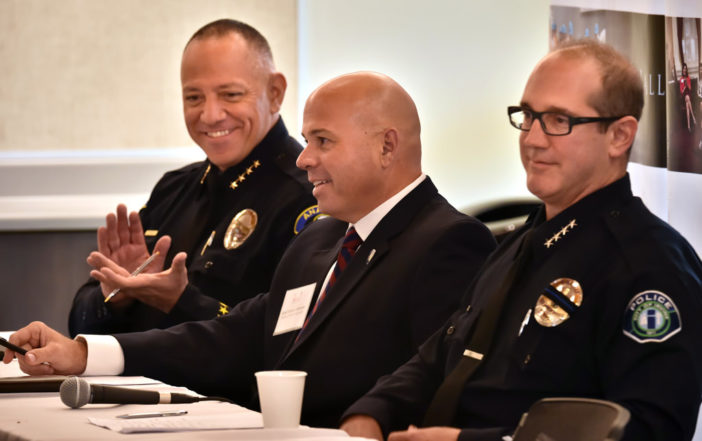The crime-ridden and highly visible homeless encampment along the Santa Ana Riverbed will be dealt with – and soon – said Undersheriff Don Barnes of the Orange County Sheriff’s Department, speaking recently at a Public Safety Forum hosted by the Association of California Cities – Orange County.
The Sept. 7 forum, which featured a panel of law enforcement officials and city leaders from around the county, included frank discussions about collective public safety concerns, stemming, in many cases, from legislation that saddles police with more responsibilities.
Causes, solutions and ramifications of the county’s burgeoning homeless population, particularly on the riverbed, were the main topic of discussion.
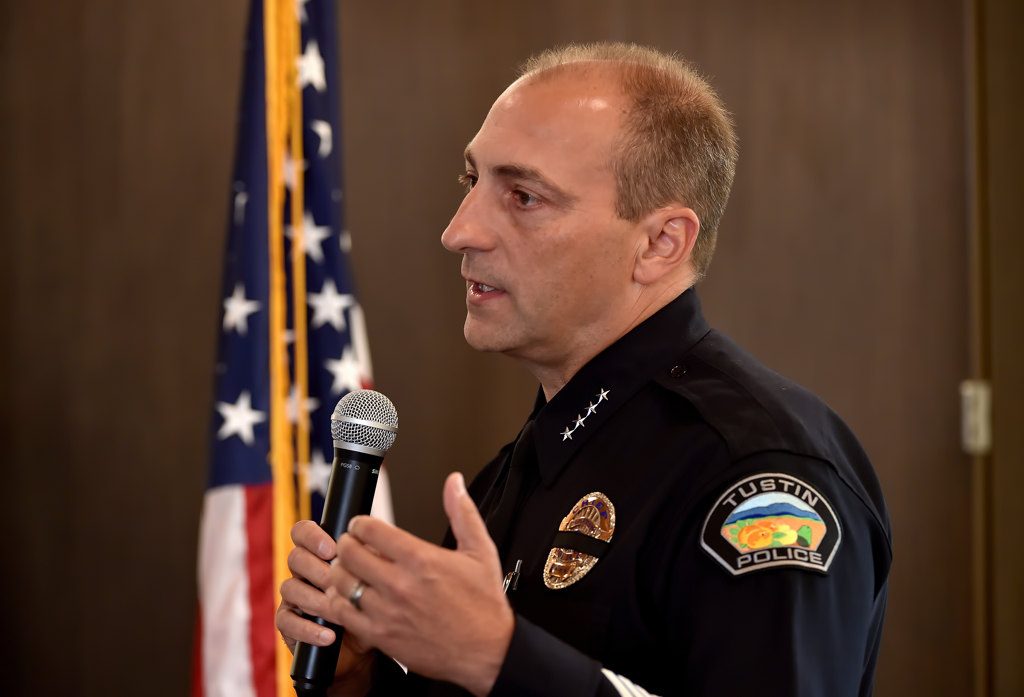
Tustin Police Chief Charles Celano moderates the ACC-OC Public Safety Forum at the Quail Hill Community Center in Irvine.
Photo by Steven Georges/Behind the Badge OC
State prison realignment and the reduction of felonies to misdemeanors releases more convicted felons into communities, Barnes said.

From left, Anaheim Police Chief Raul Quezada, Gardena Police Chief Edward Medrano and Irvine Police Chief Mike Hamel were among participants at the ACC-OC Public Safety Forum at the Quail Hill Community Center in Irvine.
Photo by Steven Georges/Behind the Badge OC
Additionally, highly potent, legally available marijuana and more powerful, easily acquired opiates are leading to higher numbers of addicts and drug-related crime, the undersheriff said.
“Legislatively, the burden placed on law enforcement has been very difficult for us as a profession,” Barnes said. “When you look at all the issues we are facing as a society, a lot of the issues that are trickling down on to law enforcement aren’t designed to be our responsibilities.”
The OCSD will take the lead in an effort to begin enforcing laws along the riverbed, Barnes said.

Anaheim Police Chief Raul Quezada, left, during a panel discussion for the ACC-OC Public Safety Forum. On his left is Gardena Police Chief Edward Medrano and Irvine Police Chief Mike Hamel.
Photo by Steven Georges/Behind the Badge OC
“We are moving very fast … to make sure we are not just punting this problem back and forth from community to community,” he said. “We have to have some solution (quickly) to start moving the ball forward.”
Along with Barnes, panelists included Third District Supervisor Todd Spitzer, Anaheim Police Chief Raul Quezada, Tustin PD Chief Charlie Celano, Irvine PD Chief Mike Hamel and Gardena Police Chief Ed Medrano, president of the California Police Chiefs Association.
Spitzer implored city leaders to take a collaborative approach and demand action from the county to help solve the problem.
“I came this morning to say when are we going to say enough is enough in our county,” Spitzer said. “What is happening on the riverbed is completely unacceptable. We need to pull together to figure out what we want our county to look like.”
Discussions also included the changing face of police departments, which often include dedicated, specially trained homeless liaison and mental health officers tasked with getting help for destitute, mentally ill individuals.
“We all know traditional police activities involve making arrests, writing tickets and catching bad guys, and yes, those things are important,” Hamel said. “Beyond that, I think any contemporary full-service police agency today has got to understand the importance of non-traditional police activities…true community policing, where you have the police officers embedded in the community.”
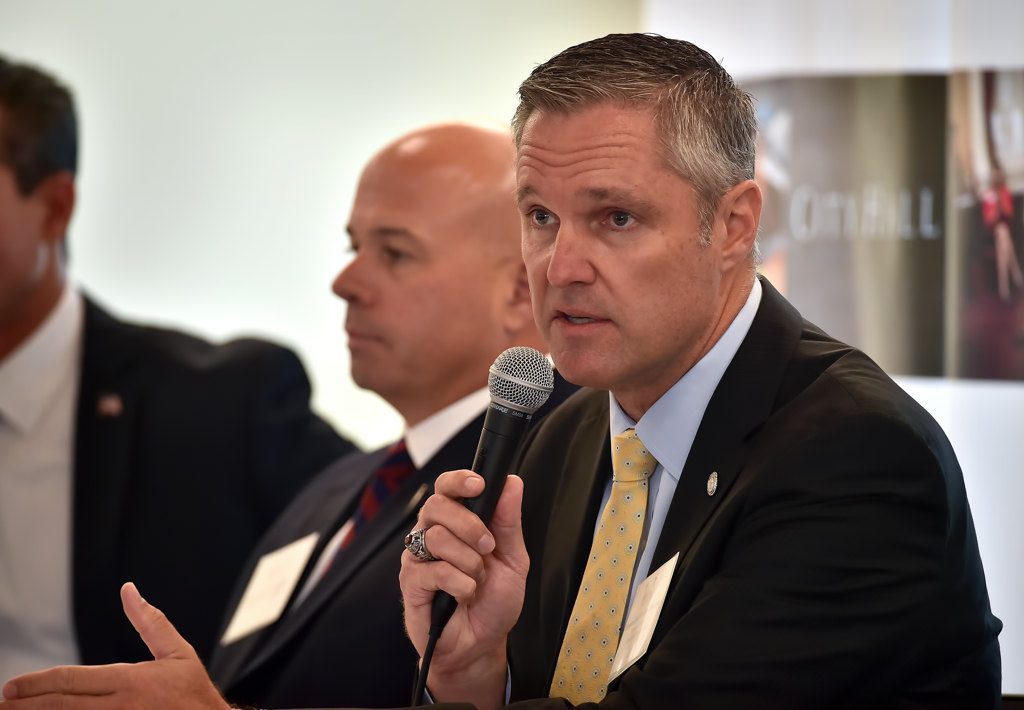
Orange County Undersheriff Don Barnes talks during the second panel of the ACC-OC Public Safety Forum.
Photo by Steven Georges/Behind the Badge OC
Spitzer said he disagrees with the trend of police having to be providers of non-traditional police services.
“Police are supposed to be police,” the supervisor said. “I don’t agree that they are supposed to be social workers and psychologists and medical care providers.”

Mayor Pro Tem of Yorba Linda Gene Hernandez gives his input as questions were opened to the floor during the ACC-OC Public Safety Forum.
Photo by Steven Georges/Behind the Badge OC

Orange County Supervisor Todd Spitzer talks about issues, including the homeless, during the second panel of the ACC-OC Public Safety Forum.
Photo by Steven Georges/Behind the Badge OC

Tustin Mayor Pro Tem Al Murray asks a question during the ACC-OC Public Safety Forum.
Photo by Steven Georges/Behind the Badge OC
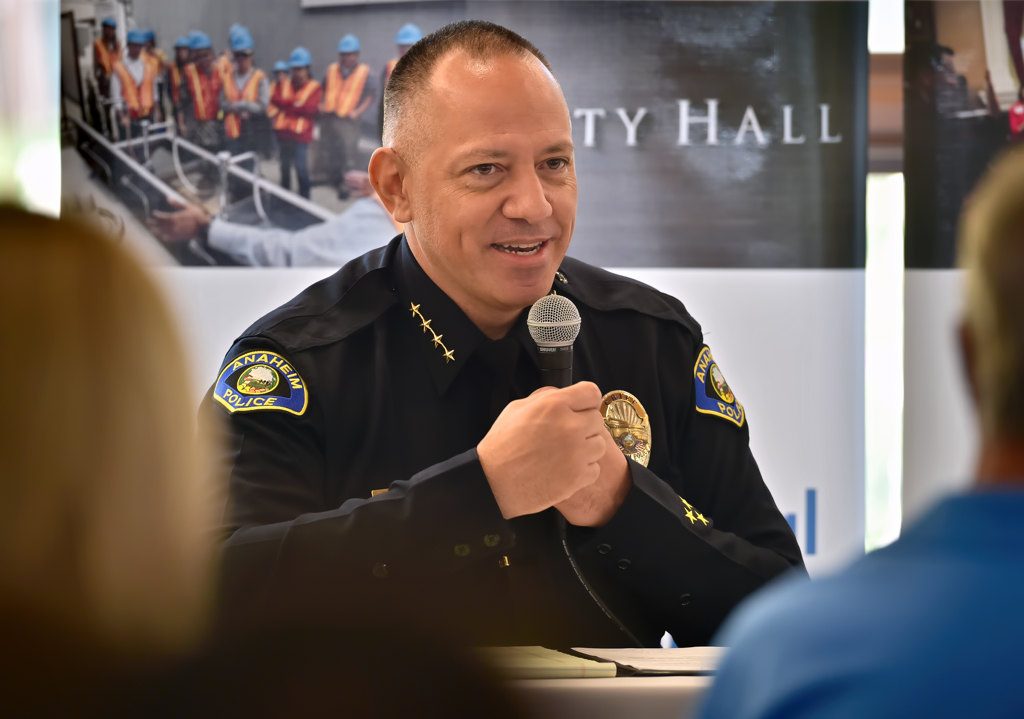
Anaheim Police Chief Raul Quezada takes questions during the ACC-OC Public Safety Forum.
Photo by Steven Georges/Behind the Badge OC
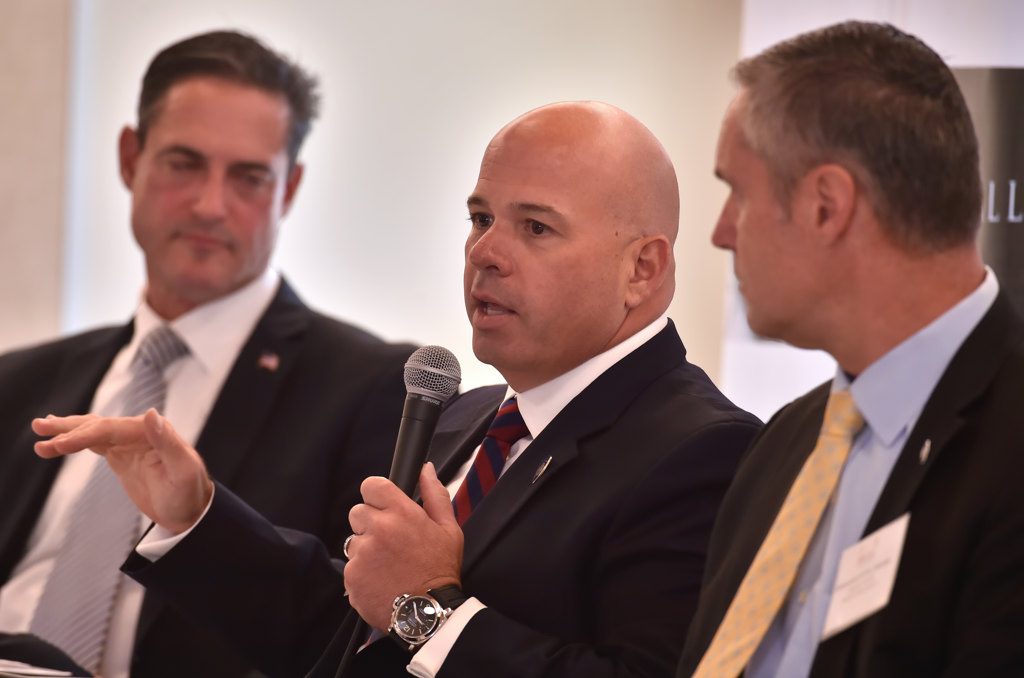
Having the opportunity to sit on both panels, Gardena Police Chief Edward Medrano gives his views during the second panel of the ACC-OC Public Safety Forum. On his right is Orange County Supervisor Todd Spitzer and on his left is Orange County Undersheriff Don Barnes.
Photo by Steven Georges/Behind the Badge OC
 Behind the Badge
Behind the Badge
